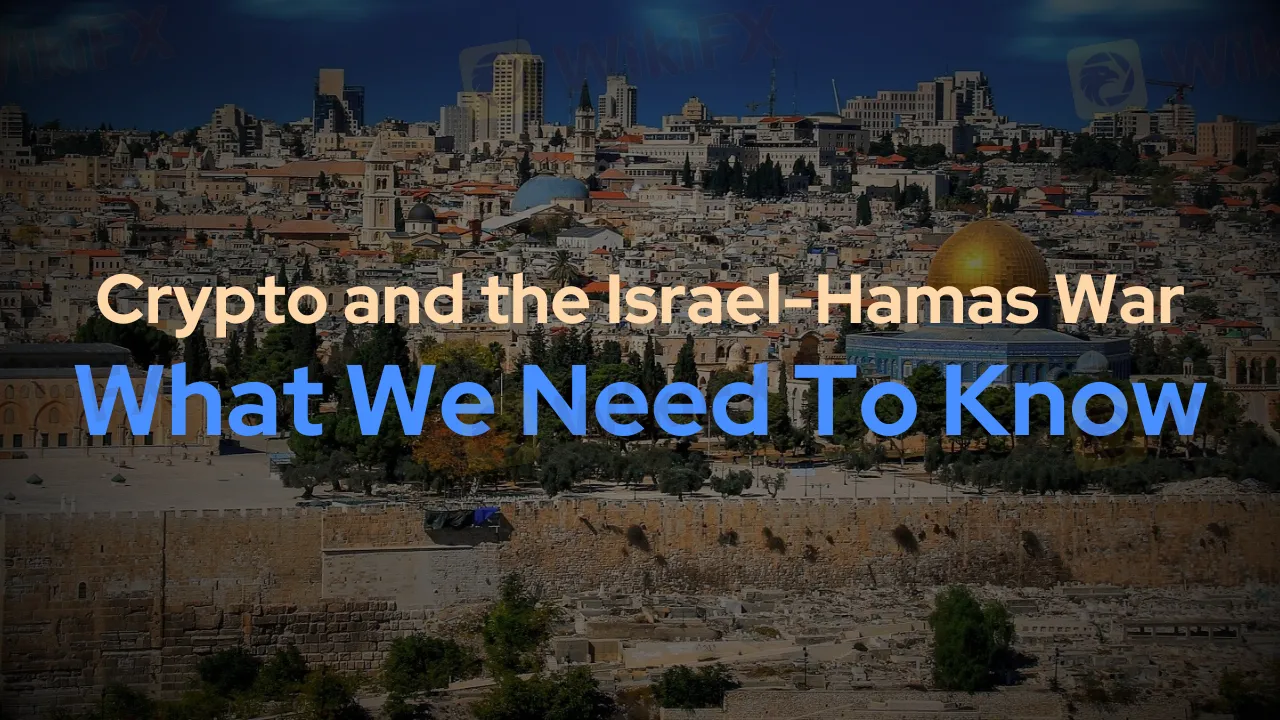简体中文
繁體中文
English
Pусский
日本語
ภาษาไทย
Tiếng Việt
Bahasa Indonesia
Español
हिन्दी
Filippiiniläinen
Français
Deutsch
Português
Türkçe
한국어
العربية
Crypto and the Israel-Hamas War: What We Need To Know
Abstract:In the unfolding Israel-Hamas conflict, the use of cryptocurrencies has emerged as a notable point of interest. Here's a breakdown of the discussions surrounding the topic.

In the unfolding Israel-Hamas conflict, the use of cryptocurrencies has emerged as a notable point of interest. Here's a breakdown of the discussions surrounding the topic.
Digital Trails
Israeli authorities have reported seizing some cryptocurrency funds, underscoring the existence of a digital paper trail. Blockchain data, upon which cryptocurrencies like Bitcoin operate, offers a transparent record of transactions. While this transparency is often seen as a boon for legitimate transactions, Sud becomes a risk for those attempting to discreetly move funds.
However, the exact amount of cryptocurrency used by Hamas remains a point of ambiguity. Some figures require further context, as certain territories have over-the-counter brokers that may inadvertently be linked to Hamas. If these brokers have ties to the group, their accounts, which may contain funds unrelated to Hamas, could be seized.
Cryptocurrency's Role in Modern Conflicts
Crypto, originally lauded for its decentralized and censorship-resistant nature, has found itself under scrutiny. While it was designed to be a universal currency accessible to all without interference, the reality is that it operates within a regulated world. Financial services, especially in the U.S., have had regulatory measures in place since 2013, dispelling the myth that crypto is unregulated.

However, a key concern is that bad actors, such as Hamas, may exploit jurisdictions with lax or unimplemented regulations. These jurisdictions become weak points, allowing the bypass of established safeguards.
Hamas' Funding Sources
The funding landscape for Hamas is vast. Beyond crypto, Hamas has a diverse range of financial sources. From taxation to businesses and more traditional forms of fundraising, the group has been known to use various means. The U.S. Treasury even sanctioned the Hamas Investment Office last year, which held assets worth $500 million, spanning businesses, real estate, and mining.
Related news:
Regarding the crypto's role in this landscape, experts suggest it is a minor component. Public solicitations for cryptocurrency donations, while immediate, raise the group's profile and inherently attract investigative attention. With the transparent nature of blockchain, these transactions can be traced, making them less attractive for entities seeking discretion.
In conclusion, while the Israel-Hamas conflict has thrown light on the potential use of crypto in such scenarios, it remains just one facet in a complex web of funding sources. The transparent nature of cryptocurrency might deter its extensive use for covert activities, but its global nature ensures it remains a point of interest in the evolving landscape of modern conflicts.

Disclaimer:
The views in this article only represent the author's personal views, and do not constitute investment advice on this platform. This platform does not guarantee the accuracy, completeness and timeliness of the information in the article, and will not be liable for any loss caused by the use of or reliance on the information in the article.
Read more

MultiBank Group Wins Big at Traders Fair Hong Kong 2024
Discover how MultiBank Group, a global leader in financial derivatives, secured three prestigious awards at Traders Fair Hong Kong 2024, highlighting its innovative trading solutions and industry excellence.

CySEC Settles Compliance Case with Fxview Operator Charlgate Ltd
Discover how CySEC resolved compliance issues with Charlgate Ltd, the operator of Fxview, through a €50,000 settlement. Explore the investigation, regulatory measures, and CySEC's new website designed for improved accessibility and transparency.

TradingView Launches Liquidity Analysis Tool DEX Screener
Discover TradingView's DEX Screener, a powerful tool for analyzing decentralized exchange trading pairs. Access metrics like liquidity, trading volume, and FDV to make smarter, data-driven trading decisions.

What Are The Common Types of Unregulated Forex Brokers?
Protect your investments from unregulated forex brokers with these tips. Learn about red flags, scams, and how the WikiFX app ensures safe trading experiences worldwide.
WikiFX Broker
Latest News
Volkswagen agrees deal to avoid Germany plant closures
Geopolitical Events: What They Are & Their Impact?
Top 10 Trading Indicators Every Forex Trader Should Know
TradingView Launches Liquidity Analysis Tool DEX Screener
MultiBank Group Wins Big at Traders Fair Hong Kong 2024
WikiEXPO Global Expert Interview: Simone Martin—— Exploring Financial Regulation Change
'Young investors make investment decisions impulsively to keep up with current trends' FCA Reveals
Why Do You Feel Scared During Trade Execution?
CySEC Settles Compliance Case with Fxview Operator Charlgate Ltd
Malaysian Influencer Detained in Taiwan Over Alleged Role in Fraud Scheme
Currency Calculator



